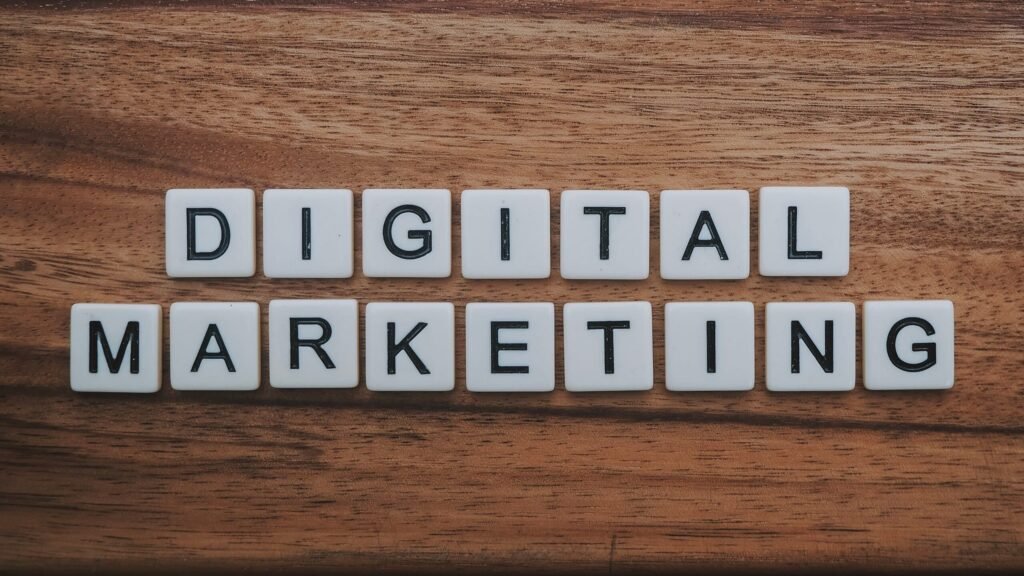In today’s digital age, where technology is constantly evolving, businesses need to adapt and stay ahead of the game. Traditional marketing methods are no longer enough to reach and engage with the target audience. This is where digital marketing comes into play – a powerful tool that has revolutionized the way businesses promote their products and services.
What is Digital Marketing?
Digital marketing refers to the use of digital channels such as websites, search engines, social media platforms, email, and mobile apps to promote products or services. It encompasses various strategies and techniques aimed at attracting, engaging, and converting potential customers online.
The Benefits of Digital Marketing
1. Increased Reach: With digital marketing, businesses can reach a global audience. Unlike traditional marketing methods, digital marketing allows businesses to target specific demographics, interests, and behaviors, ensuring that their message reaches the right people at the right time.
2. Cost-Effective: Digital marketing is more cost-effective than traditional marketing. Businesses can reach a larger audience with a smaller budget by utilizing targeted advertising, email marketing, and social media campaigns. This makes it a viable option for small businesses and startups looking to maximize their marketing efforts.
3. Measurable Results: One of the significant advantages of digital marketing is the ability to track and measure results in real-time. Businesses can analyze data and metrics to determine the success of their campaigns, identify areas for improvement, and make data-driven decisions to optimize their marketing strategies.
4. Increased Brand Awareness: Digital marketing allows businesses to create a strong online presence and increase brand awareness. Through social media engagement, content marketing, and search engine optimization, businesses can build a loyal customer base and establish themselves as industry leaders.
5. Targeted Advertising: Digital marketing enables businesses to target their advertising efforts to specific demographics, interests, and behaviors. This ensures that the message reaches the right audience, increasing the chances of conversion and generating a higher return on investment.
Key Components of Digital Marketing
1. Search Engine Optimization (SEO): SEO is the process of optimizing a website to rank higher in search engine results pages. By implementing SEO strategies such as keyword research, on-page optimization, and link building, businesses can increase their online visibility and attract organic traffic.
2. Pay-Per-Click (PPC) Advertising: PPC advertising allows businesses to display ads on search engine results pages and other websites. With PPC, businesses only pay when a user clicks on their ad, making it a cost-effective advertising method.
3. Social Media Marketing: Social media platforms such as Facebook, Instagram, Twitter, and LinkedIn offer businesses an opportunity to connect and engage with their target audience. Through social media marketing, businesses can build brand awareness, drive website traffic, and generate leads.
4. Content Marketing: Content marketing involves creating and sharing valuable, relevant, and consistent content to attract and retain a clearly defined audience. By providing valuable information and addressing the pain points of their target audience, businesses can establish themselves as industry experts and build trust with their customers.
5. Email Marketing: Email marketing remains one of the most effective digital marketing strategies. By building an email list and sending targeted and personalized emails, businesses can nurture leads, drive conversions, and build long-term customer relationships.
The Future of Digital Marketing
As technology continues to advance, the future of digital marketing looks promising. Emerging technologies such as artificial intelligence, virtual reality, and voice search are reshaping the digital marketing landscape. Businesses need to stay updated with the latest trends and adapt their strategies to stay ahead of the competition.
In conclusion, digital marketing has become an essential tool for businesses of all sizes. Its ability to reach a global audience, cost-effectiveness, measurable results, and targeted advertising make it a game-changer in today’s competitive market. By leveraging the power of digital marketing, businesses can drive growth, increase brand awareness, and stay ahead in the digital age.

